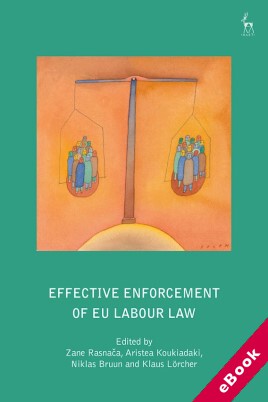
The device(s) you use to access the eBook content must be authorized with an Adobe ID before you download the product otherwise it will fail to register correctly.
For further information see https://www.wildy.com/ebook-formats
Once the order is confirmed an automated e-mail will be sent to you to allow you to download the eBook.
All eBooks are supplied firm sale and cannot be returned. If you believe there is a fault with your eBook then contact us on ebooks@wildy.com and we will help in resolving the issue. This does not affect your statutory rights.
This book by the ETUI Transnational Trade Union Rights Expert Network analyses enforcement as a key element making EU labour law effective or ineffective.
Enforcement is the key ingredient that makes rights effective and ensures compliance. It can make or break a legal system. Despite this, enforcement of EU labour law has received little scholarly attention in recent decades and has rarely been examined in a comprehensive way. This book aims to fill this gap.
Intended for academics and practitioners alike, the book adopts a threefold approach to examine this issue. First of all, it explores the idea of effective enforcement and sets out the wider context in which EU labour law enforcement takes place. Secondly, it analyses how enforcement operates in particular areas, including non-discrimination, health and safety, information and consultation rights, and the rights of migrating workers. Thirdly, it critically assesses the role of specific actors (in particular collective actors like trade unions, as well as whistle-blowers and the European Labour Authority) and settings (public procurement, economic and monetary policy) regulated by EU law. Drawing on the insights produced by these analyses, the book concludes by proposing a comprehensive Draft for a Model Directive on 'Effective Enforcement of EU Labour Law' as an inspiration for policy development and scholarly debate in this area.